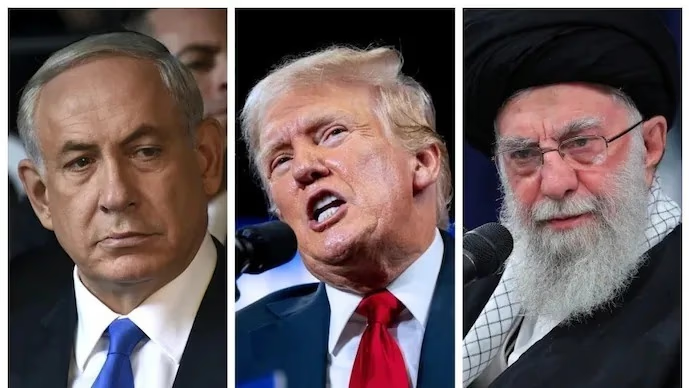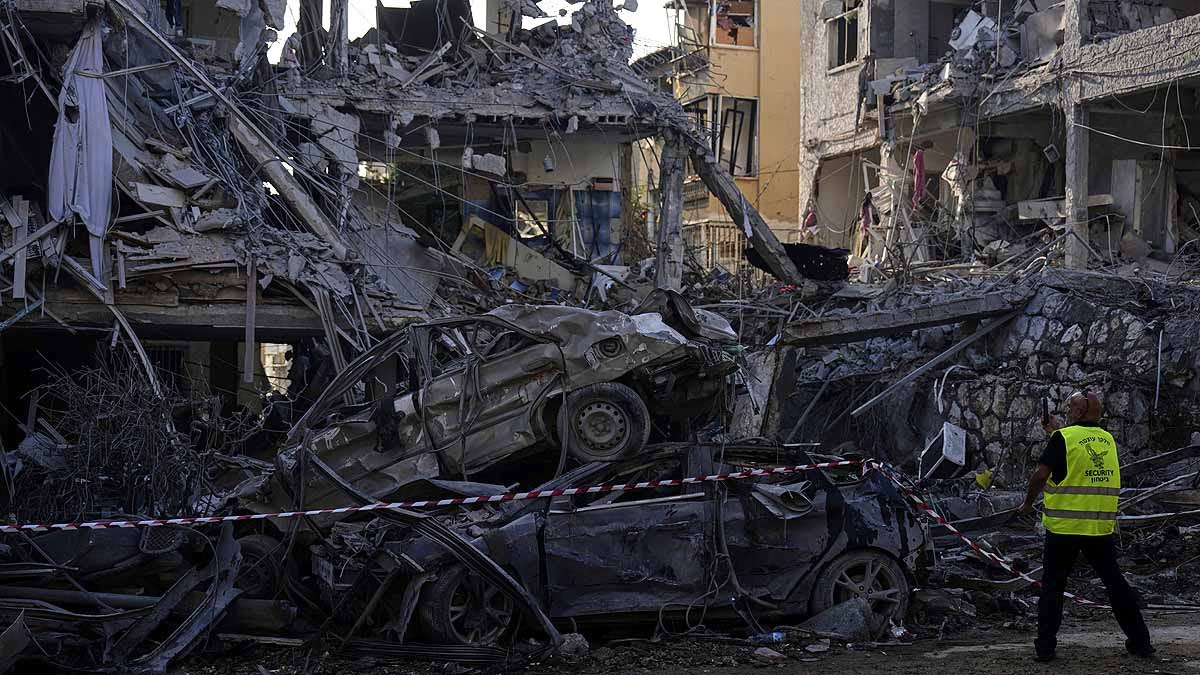President Donald Trump is departing the G7 summit early to return to Washington amid rising Middle East tensions. He decided to leave Canada a day before the summit concludes. Due to the Israel-Iran tension, Trump warned people to evacuate Tehran immediately. What does Trump’s early departure and the members' open support for Israel suggest for the future?
Escalating Conflict in the Middle East
The White House stated that President Trump is returning to focus on critical issues amid increasing Middle East tensions. After a dinner with world leaders on Tuesday night, he will leave the summit early, raising the question of whether the U.S. might engage in the conflict. Although Trump has openly supported Israel, the U.S. has yet to declare direct involvement in the fighting.
Read More: Amid India's Increase of 8 Nuclear Bombs in a Year, China Adds 100... Check Nuclear Arsenal of Other Nations
Signals from President Trump indicate strong American support for Israel, but the U.S. has denied direct involvement in recent attacks. U.S. Secretary of State Marco Rubio mentioned that Israel conducted recent attacks on Iran unilaterally and the U.S. was not involved. America's priority is ensuring the safety of its forces in the region, but the changing landscape could draw the U.S. more directly into the conflict.
G7 Leaders Support Israel
Israel has openly requested U.S. support, particularly in military operations to dismantle Iran's nuclear program. These appeals focus on underground nuclear facilities, which the U.S. can target with specialized weapons. During the G7 summit, all countries openly supported Israel and urged pressure on Iran to reduce tensions. Members emphasized no right for Iran to build nuclear weapons and urged Israel’s self-defense, strengthening its resolve and potentially escalating actions against Iran. Trump left the summit after discussing tensions with world leaders.
No Progress on the Nuclear Deal
The U.S. has increased its military presence in the Middle East, including deploying B-2 stealth bombers and other military resources. This move hints at preparedness for a potential regional conflict. Trump stated that any attack by Iran on American interests or military bases would be met with a severe response, showcasing America's military readiness.
Read More: Putin and Xi Jinping to Act as Peace Mediators! Offering Mediation in Israel-Iran Conflict
The Trump administration tried to revive the nuclear deal with Iran but ended without consensus at the 60-day ultimatum. This failure gives Trump a pretext for a stern response. Iran dismissed the proposal, claiming its nuclear program is peaceful. Israeli attacks disrupted these talks, intensifying regional tensions.
Escalating Israeli Attacks and American Warnings
Israeli attacks and American warnings have pushed Middle East tensions to a peak. Iran threatened a counter-response, targeting American facilities. France, a G7 member, advocated for a ceasefire and diplomatic solution, but Trump’s tough stance against Iran looks provocative. On Monday, Trump publicly warned Tehran residents to evacuate immediately, a warning seen as a grim ultimatum. He claimed Iran should have settled on a nuclear deal. The warning likely aims to increase diplomatic pressure on Iran to negotiate on its nuclear program. Trump's statement followed Israeli military actions targeting strategic sites in Tehran.
Read More: Iranian Anchors Return to Broadcast Post Attack, Challenge Israel to Gain Ground!
Trump’s ultimatum and early G7 exit signal America's serious approach to the situation. If Iran retaliates, U.S. military involvement may increase, especially if its bases are targeted. Trump wants to pressure Iran into a nuclear deal through military threat, but Israeli attacks have complicated this strategy.




